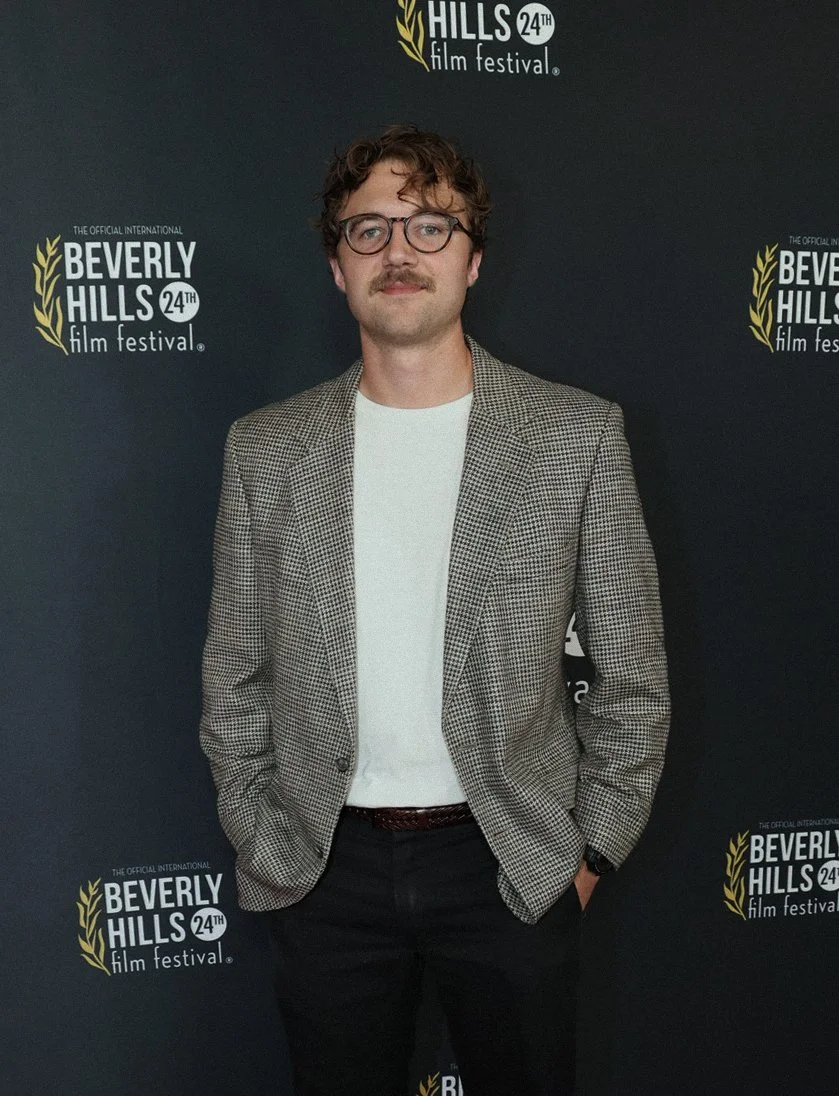A COUNTRY DOG
Short Film
Project Type: Short Film
Project Status: Pre-Production
Director: Ryan Nielsen
Producer: Frank D’Argenio Producer: Carson Aden
LOGLINE
After relocating to the countryside, a mother is drawn into quiet conflict when her family dog is blamed for killing a neighbor’s chickens.
SYNOPSIS
Grace Wallace, a city-raised mother of two, has recently moved with her husband and children to a rural town, adjusting to the quiet isolation of country life. One cold morning, she notices their family dog, Lady, is missing. When she finds Lady’s food bowl untouched, a small sense of unease settles in.
Later that day, Grace receives an unexpected phone call from a neighbor, Annie Clark, who reports that Lady has been killing their chickens. Annie’s husband had chased the dog off, and another local, Joe White, confirmed it was Lady. Though relieved that her dog is still alive, Grace is skeptical—Lady has always been a gentle and obedient pet.
As the day unfolds, Grace encounters more townspeople, all of whom reinforce the same sentiment: once a dog gets a taste for blood, it cannot be trusted. Some suggest chaining Lady up. Others, more bluntly, say the only solution is to shoot the dog. Grace is disturbed by how casually they talk about it, as if it’s a simple, practical decision. When she picks up her children from school, she’s horrified to hear that even their teacher has been spreading the idea that Lady will need to be put down.
Determined to find another solution, Grace visits a supply store and buys a sturdy chain, hoping restraint will be enough. However, a passing comment from the store clerk unsettles her—her husband, Lukas, had recently purchased a shotgun, something he never mentioned. This quiet betrayal lingers in her mind as she returns home.
That evening, Grace searches for the gun and finds it hidden in a closet. With a mix of anger, desperation, and resignation, she takes it and heads into the woods to find Lady. As she walks deeper into the fading light, she calls out for the dog, her voice laced with uncertainty. When Lady finally appears, her black-and-brown coat matted with blood, she stands still, panting, watching Grace. Grace raises the shotgun, her hands shaking, torn between the pressure of her community and her own moral instincts. The weight of expectation, fear, and doubt hangs heavy in the cold, silent woods. She hesitates, staring at the dog she once trusted, now a supposed killer. The film ends in eerie stillness, leaving the audience in suspense—will she pull the trigger, or will she defy the unspoken rules of rural life?
MORE ABOUT THIS PROJECT
I first came across Shirley Jackson when my fiancée picked up her short story collection at a bookstore in Los Angeles. She was drawn to the cover — a fragmented, unsettling collage that felt quietly disturbing — but it was the description of Jackson’s focus on domestic psychological horror that sold her. Months later, I started reading the stories myself. I was struck by how dread builds beneath the surface, without ever announcing itself.
Eventually, I came across her story, Renegade — a seemingly simple story about a rural mother whose dog is accused of killing a neighbor’s chickens. That story became the seed of A Country Dog. I wasn’t interested in a direct adaptation, but in capturing its emotional tone — restrained, ambiguous, and quietly brutal. Like some of my filmmaking influences — Haneke, Bresson, and Todd Field — the film relies on silence, distance, and behavior rather than plot or exposition.
It’s a film that asks the viewer to lean in. Like its source material, A Country Dog explores isolation, the loss of personal agency in an unfamiliar environment, and the clash between urban sensibilities and rural pragmatism.
Set in a rural landscape that’s both open and quietly suffocating, the film moves slowly and deliberately, reflecting the emotional distance between its characters. It’s a story without clear villains or heroes, and where even good intentions get warped by circumstance.
Meet The Filmmakers
-
Carson Aden
Producer
Carson Aden is a producer based in Los Angeles, originally from Iowa. He began his creative career in Chicago as a writer at The Second City, where he developed a sharp eye for character and storytelling through sketch comedy. His passion for film eventually led him west, where he now lives and works full-time in production. Carson currently manages physical production on the historic Fox Studio Lot, overseeing a range of television and film projects. He’s drawn to stories that explore moral ambiguity, and the quiet tension that builds beneath the surface of everyday life.
-
Ryan Nielsen
Director and Writer
Ryan Nielsen is a Writer and Director based in Los Angeles, CA. He was born and raised in Fort Dodge, IA and attended the University of Iowa, where he earned Bachelor’s Degrees in Creative Writing and Cinema. His upbringing in the Midwest has influenced his storytelling in many ways, and he is often drawn to stories with a restrained visual style that explore moral ambiguity, fractured family relationships, and social dynamics. He believes in the power of treating seemingly-mundane incidents as something that can be grand and cinematic. Ryan’s latest short film, Pretty as a Picture, was selected to several film festivals including Dances With Films, the Catalina Film Festival, and Film Quest.
-

Frank D’Argenio
Producer
Frank D’Argenio is a Los Angeles-based writer and producer, originally from Chicago. A former writer with The Second City, he has worked across live theater and digital media, with a focus on character-driven storytelling and collaborative creative work. His projects often explore themes of identity, connection, and everyday experience. Frank is currently developing original content while continuing to collaborate with artists throughout the L.A. creative community
Your Help
A COUNTRY DOG is a fiscally sponsored project of Cinematography for Actors, a 501(c)(3) nonprofit organization. Your donation will be tax-deductible!



